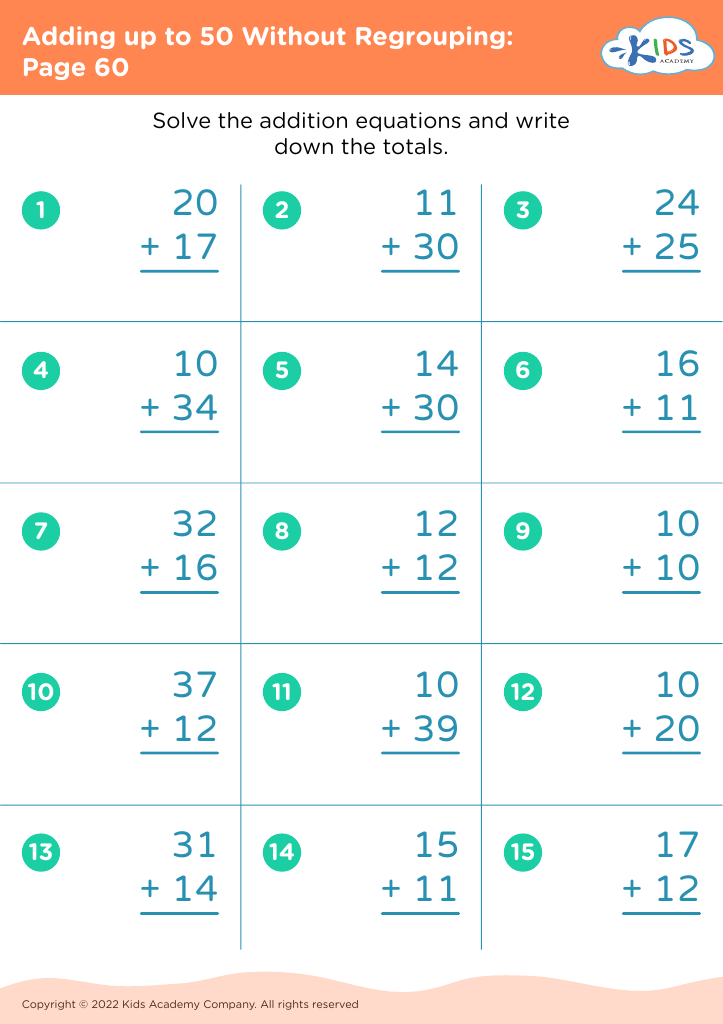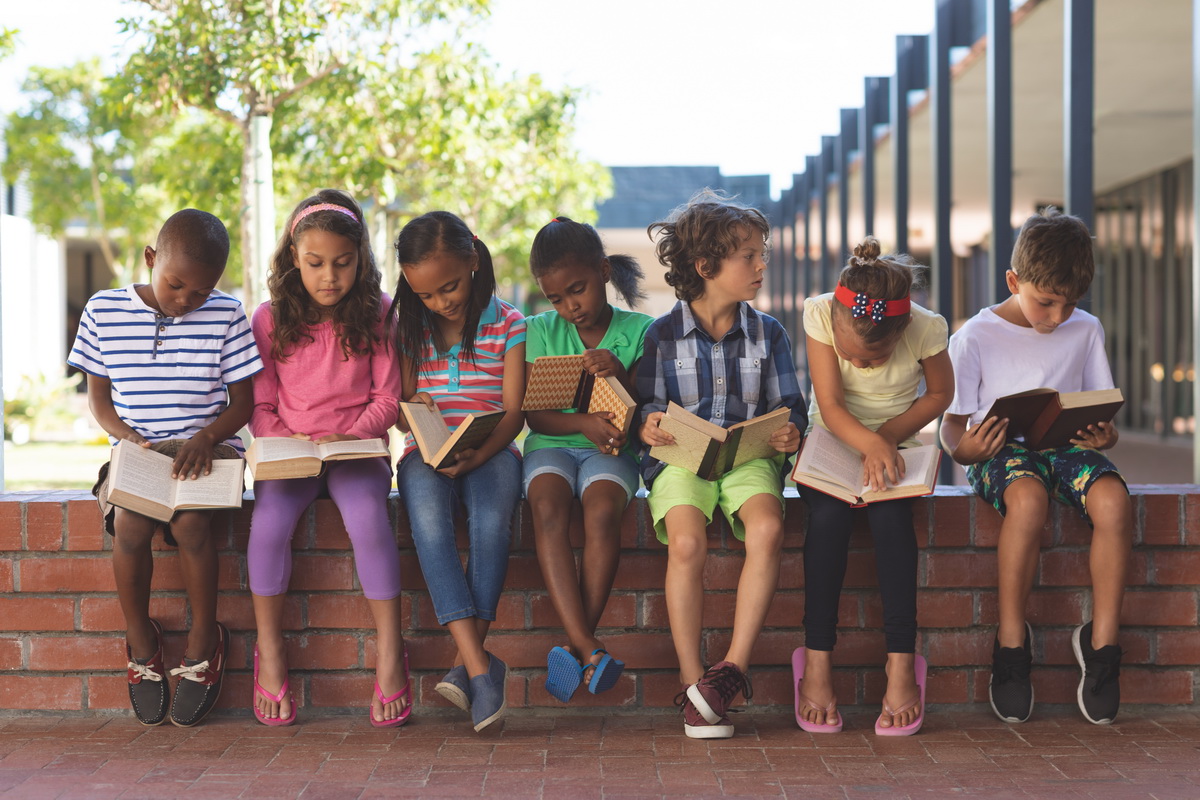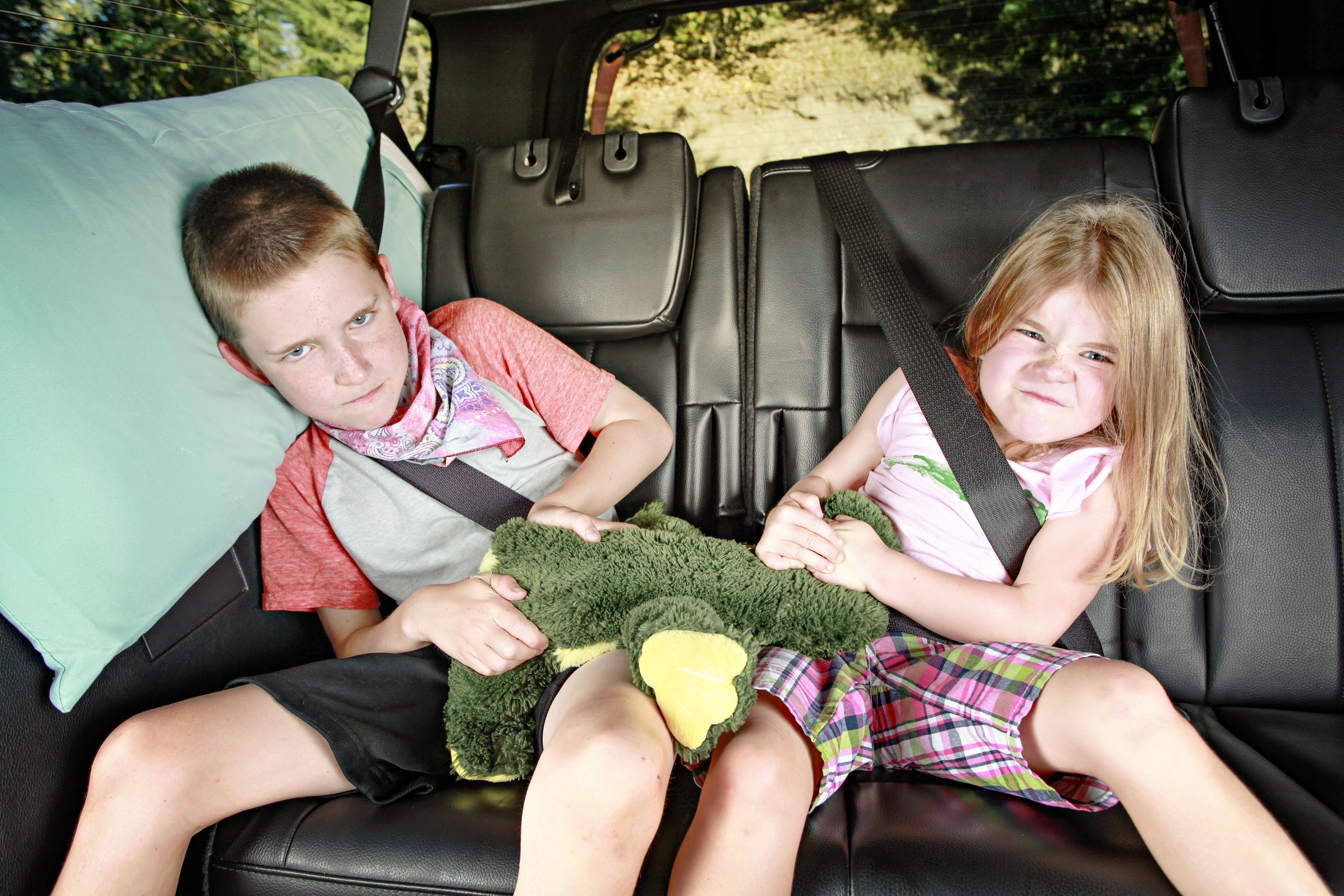Basic measurement skills Worksheets for Ages 5-9
4 filtered results
-
From - To
Discover our "Basic Measurement Skills Worksheets" designed for children ages 5-9. These engaging, printable worksheets help young learners develop essential measurement concepts, including recognizing and using common units of measurement. With a variety of fun activities, kids will explore length, weight, and volume through hands-on practice. Whether measuring everyday objects or solving measurement problems, our resources cater to different learning styles, ensuring every child gains confidence and mastery. Perfect for classroom use or at-home learning, these worksheets provide an interactive learning experience to support your child's growth in math skills, setting a strong foundation for future learning.
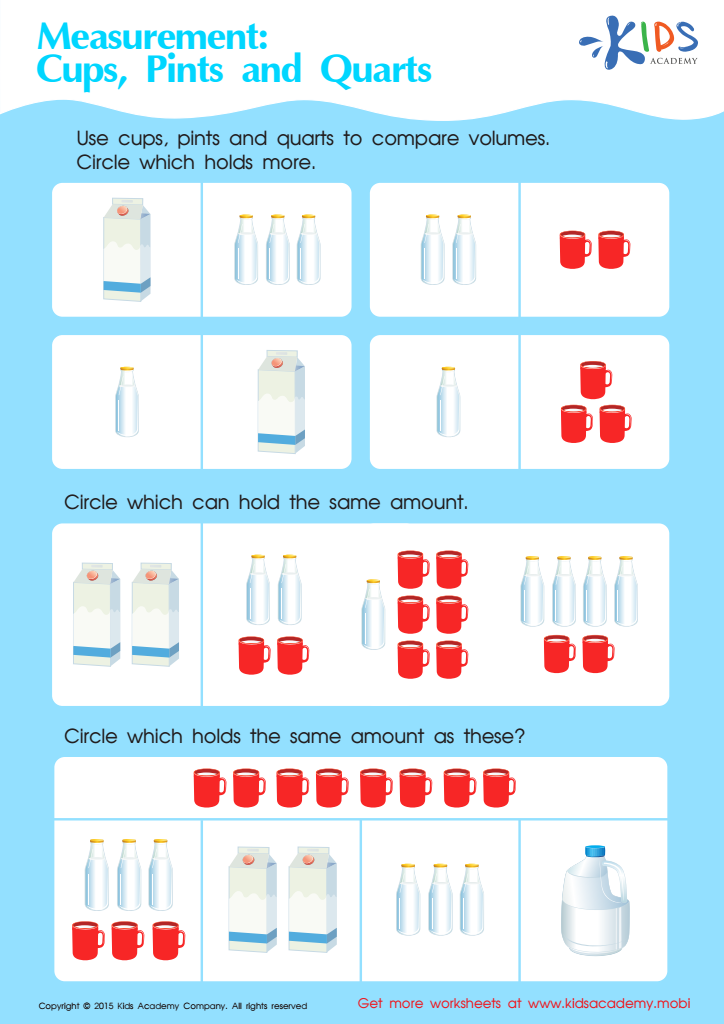

Measurement: Compare Volumes Worksheet
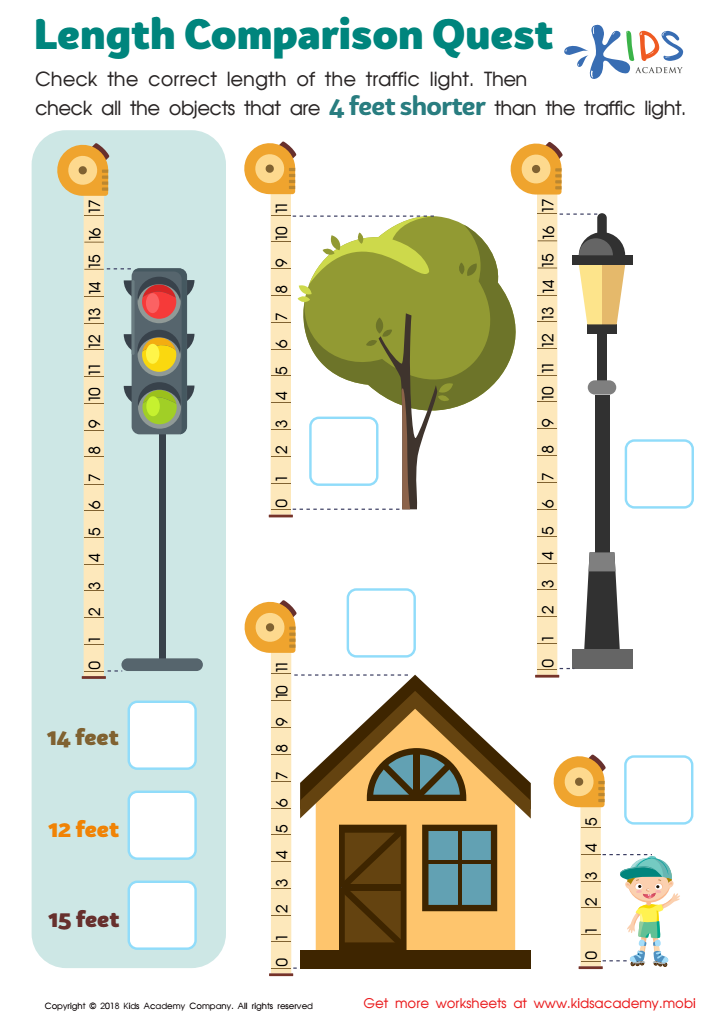

Length Comparison Quest Worksheet
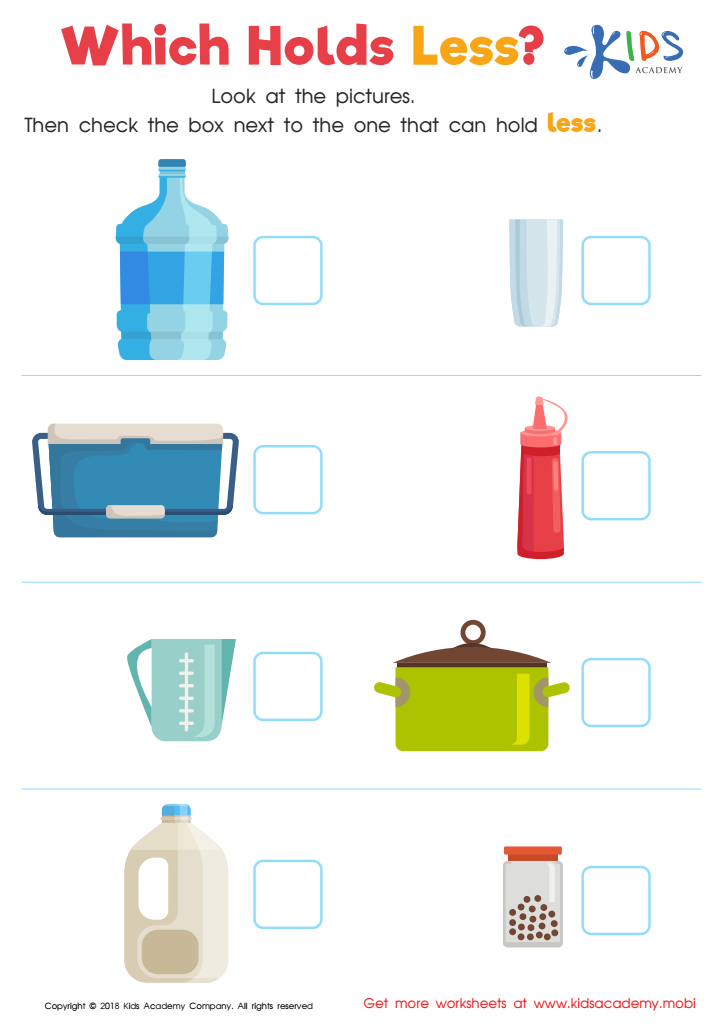

Which Holds Less? Worksheet
Basic measurement skills are essential for children aged 5-9 as they lay the foundation for critical thinking, problem-solving, and real-world applications. Understanding measurement helps children grasp concepts such as size, volume, weight, and time, which are vital for daily activities and future academic success.
For parents and teachers, fostering these skills enhances a child’s cognitive development. Early familiarity with mathematical concepts encourages confidence and a positive attitude toward learning. Measurement activities, like comparing height or weighing ingredients, can also stimulate curiosity and engagement, transforming abstract ideas into tangible experiences.
Moreover, measurement skills are closely linked to other areas of learning. For instance, science experiments often require precise measurements, and understanding time is crucial for developing routines and disciplines. As children learn to measure, they also practice estimation, comparison, and ordering, which are fundamental skills in mathematics.
Encouraging children to explore measurement through fun, hands-on activities—like cooking, building, or crafting—can create joyful learning experiences. This engagement inspires lifelong learning habits, better prepares them for academic challenges, and nurtures essential life skills. Ultimately, prioritizing measurement skills in early education sets the stage for a confident and capable learner.
 Assign to My Students
Assign to My Students
